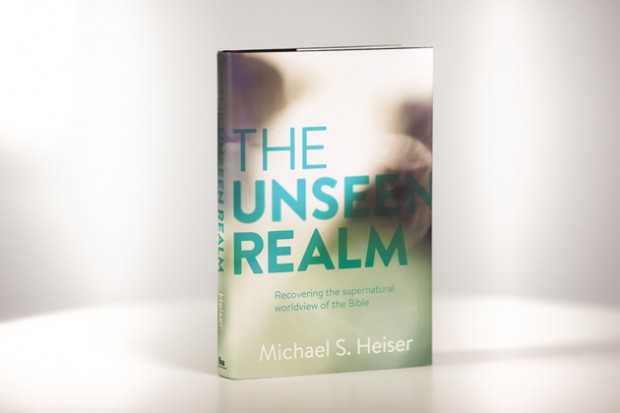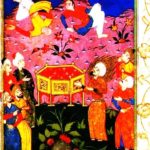When we look at Islam’s most trusted sources today, it is easy to read them like the modern people that we are. It’s slightly harder to read the sources like Islamic scholars in the Middle Ages (or that almost all of them do even now). It’s harder still to read the sources like the people of Muhammad’s day would have. I suggest, however, that we need to look at Islam with ancient eyes, with eyes and a mind trained by an understanding of how people of Arabia would have thought in AD 710, in AD 1, and even in 1500 BC, at the time of Moses. This is the context of all of the things that are going on in the foundation of Islam, and if you don’t know this context, you miss most of what is going on.
One of the most valuable and approachable resources for getting into the heads of ancient people is Dr. Michael Heiser’s book, The Unseen Realm. Even though it’s written from a Christian viewpoint, it contains a good presentation of what ancient Jews were thinking, in contrast to their pagan neighbors. I really encourage everyone to read this book.
The so-called Age of Reason has really interfered with our ability to understand ancient people (and it is not a coincidence that all the modern “spiritualist” and occult movements had their roots at the same time). The Enlightenment forcefully removed the understanding of all the history that had come before, imposing a new belief structure on it, and so reduced the beliefs of the ancient pagans to mere superstitions to be indulged–all while busily spinning new religious frameworks that the people who were building them could not even see. I would like to suggest that if you force a post-Enlightenment view on the ancient world, you cannot come away with a correct idea of who they were or what they were doing, regardless of what you yourself believe.
Please don’t be put off by Heiser’s rather obstinate use of the word “gods” for all immortal beings. The word “god” has its origin in Proto-Indo-European, and it is linked to the word “to pour out”–“gods” were those to whom libations were made (drinks were poured out), which among the pagan Indo-Europeans would include all nonmaterial beings, from ancestral spirits to house spirits to deities. So Heiser is strictly correct in his usage–it really does have a one-to-one correspondence with all the meanings of elohim, the non-specific plural word. However, the word “gods” really has a different meaning to us today because of our long contact with monotheistic faiths, so I dislike trying to move “god” into the much less restrictive ancient meaning because it’s very hard for it to shake the modern view, which causes constant confusion.
Though I had personally absorbed a lot of the ancient ways of thinking through my own exposure to ancient writing, I still learned a good deal more from Dr. Heiser, and I find him to be extremely digestible for laypeople. While I do not agree with all of Dr. Heiser’s conclusions vis-a-vis the Bible, God himself, and the future after the Day of Resurrection-, I do think that his presentation will really help your approach to sources that are rooted in ancient thought.






